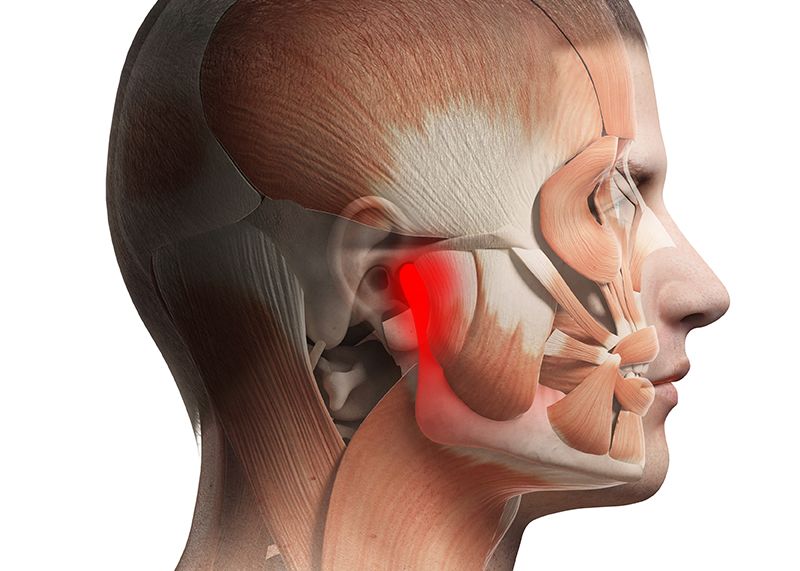Jaw Pain + TMJ Disorder
There are 8 muscles that attach to your temporomandibular joint (TMJ) that all play different roles in not only opening and closing our mouth, but also moving it side to side, chewing, talking, and yawning.
The joint itself is made up of your mandible (jaw) and maxilla that balance an articular disc in between them. This allows our jaw to slide in all directions, but also makes it susceptible to irritation.
It is not uncommon to hear popping/clicking when you move your jaw or feel that when you open your mouth, it pulls to one side instead of straight down.
Many people don’t realize that there are conservative care options for jaw pain, both for the muscles and the joint itself. [/vc_column_text]
schedule appointment nowschedule appointment now
[/vc_column_text][/vc_column][vc_column column_padding=”padding-1-percent” column_padding_position=”all” background_color_opacity=”1″ background_hover_color_opacity=”1″ column_shadow=”none” column_border_radius=”none” width=”1/3″ tablet_text_alignment=”default” phone_text_alignment=”default” column_border_width=”2px” column_border_color=”#fe7201″ column_border_style=”solid”]
Common Issues We Treat
- Jaw clicking/popping
- Pain while chewing
- Headaches
- Neck pain
- TMJ pain
- Deviation in mouth opening
WHAT IT IS
Common things that irritate TMJ pain include previous dental surgery (i.e. wisdom teeth removal), grinding of the teeth at night, clenching the jaw, but also poor posture. Sitting or standing with our head protruded adds excessive weight to our neck and jaw when it’s not directly stacked over our shoulders as it would be with good posture. This causes excessive strain on all those muscles that attach to the TMJ, so it is not uncommon to see a neck pain + TMJ pain + headache complex.
One of the muscles (temporalis) that attaches to the top of the TMJ, additionally travels up the side of your head by your ear and can be a common location for trigger points that, when pressed, can provoke both jaw pain and a headache at the same time. This is a common problem for people who carry excessive stress with them causing a subconsciously clenched jaw and stress headaches.
These are all cases that may benefit from conservative care such as muscle stripping, TMJ mobilization, and a thorough evaluation of the neck. If you do grind your teeth at night, it is additionally recommended that you see your dentist about getting a night guard.
WHAT IT ISN’T
The pain we feel is simply a request from our brain to change. Pain is often not associated with damage, rather a very apparent alert we need to change our physical behavior or else physical impairment will proceed.
While it may be difficult to find a specialist that treats TMJ pain conservatively, it doesn’t mean that you are alone in experiencing this problem.[/vc_column_text][/vc_column][/vc_row][vc_row type=”full_width_background” full_screen_row_position=”middle” scene_position=”center” text_color=”dark” text_align=”left” top_padding=”60″ bottom_padding=”80″ overlay_strength=”0.3″ shape_divider_position=”bottom” css=”.vc_custom_1506698394502{background-color: #ec503b !important;}” shape_type=””][vc_column column_padding=”no-extra-padding” column_padding_position=”all” background_color_opacity=”1″ background_hover_color_opacity=”1″ column_shadow=”none” column_border_radius=”none” width=”1/3″ tablet_text_alignment=”default” phone_text_alignment=”default” column_border_width=”none” column_border_style=”solid”]
Call Us (813) 793-7791
[/vc_column_text]schedule appointment nowschedule appointment now
[/vc_column_text][/vc_column][vc_column column_padding=”no-extra-padding” column_padding_position=”all” background_color_opacity=”1″ background_hover_color_opacity=”1″ column_shadow=”none” column_border_radius=”none” width=”1/3″ tablet_text_alignment=”default” phone_text_alignment=”default” column_border_width=”none” column_border_style=”solid”]Have Questions? We’re here to help!
[contact-form-7 id=”8″ title=”Contact form 1″] [/vc_column_text][/vc_column][vc_column column_padding=”no-extra-padding” column_padding_position=”all” background_color_opacity=”1″ background_hover_color_opacity=”1″ column_shadow=”none” column_border_radius=”none” width=”1/6″ tablet_text_alignment=”default” phone_text_alignment=”default” column_border_width=”none” column_border_style=”solid”][/vc_column][/vc_row]


